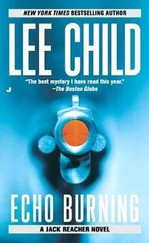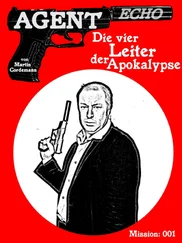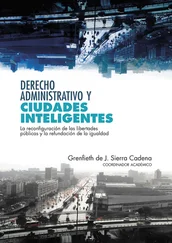It was as much as he could say. We were going to try to cross the Atlantic in a vessel built ninety years ago. He could neither guarantee our success nor our safety. On the wilderness of the water, at the mercy of the tempest, that was God’s responsibility and choice. He said he would pray for us. He promised it.
I wonder now was he ever telling me the truth about anything.
The sails duly arrived during the following week. They were Lee sails from Hong Kong and they were made from Japanese Dacron. We could have gone for the purist approach, done an Andromeda by rigging her with authentic canvas. But canvas tears in storms and, unless you have someone aboard with the skills to repair sails, it isn’t worth the risk. The modern alternatives are easier to haul, altogether tougher, and they dry out quicker, too.
My father suffered no purist agonies over the Dacron sails in the way he had over the engine. But the sails were ordered after the engine and, I think, as the date of planned departure drew nearer, his natural pragmatism came more into play. He was a risk-taker, but not compulsively so. The demands and challenges of the voyage were daunting enough. There was no debate either over our auto-steer equipment. It was electronic and dependent for its intelligence on computer chips. You plotted your course and the boat followed it. In the event of strong currents or shifts in wind direction, it was self-correcting. Essentially, it meant that we could both sleep at night, at least for a few overlapping hours. It meant that we could eat dinner together. The alternative was for one of us to be a permanent slave to the wheel. Captain Straub might frown at the employment of such technology. But when his schooner took to the seas, it did so with a crew numbering a minimum of six, not two.
I still worried about Peitersen. With the boat snug in the fitting-out berth, her head rigger was moved to abseil down from the top of the mainmast and say to me that she was as punctilious a restoration job as he had ever seen. I’d no grounds to argue with his expert judgement. But it nagged at me that Peitersen had taken no payment for the job. Regardless of his bogus identity, if the work was honestly carried out, surely he had deserved some kind of recompense for doing it so well? Jack Peitersen’s taking no payment seemed to me to be every bit as symbolic as Frank Hadley’s superstitious refusal to say out loud the Dark Echo ’s name. I did not know the significance of it. But I had an uneasy feeling that I might one day find out.
Our voyage, intended to take us to Dublin and back, was little short of a triumph. We caught the Celtic Sea in a calm and gentle disposition. So uneventful was the voyage generally, that when we anchored in Dun Laoghaire Harbour, my father suggested an ambitious extra leg to the trip. At dawn the following morning we swung north out of the harbour and set a north-easterly course. We hugged the Irish coast as far as the North Channel and continued north until we passed Rathlin Island, taking us out into the Atlantic, into the storm latitudes. Once out far enough we turned west, for Erris Head. And then we sailed a southerly course all the way along the West Coast of Ireland, swinging homeward only when we reached Mizen Head and Cape Clear.
We were gone five days rather than the two originally intended. I called Suzanne to warn her about the change in plan. She sounded strange, different. It could have been an atmospheric thing affecting my mobile. But I don’t think it was. I think it was frustration. I knew that she had come to loathe the whole Dark Echo enterprise.
The most noteworthy thing about that maiden voyage was a dream I had aboard. When we moored at Dun Laoghaire I went ashore and walked to Sandycove for a swim at the Forty Foot in the approaching twilight. My father stayed aboard. He and my mother had honeymooned in Dublin and I think going ashore would have reminded him too vividly and made him melancholy.
I dreamed of Harry Spalding and Michael Collins. They were both uniformed, resplendent in their respective uniforms, standing on the rocks at sun-up above the Forty Foot. Light, reflected off the water below the crag on which they stood, glimmered on their brass buttons and belt buckles and caressed the polished leather of their boots. Neither man had employed a second. And there was no arbiter there to officiate and no doctor with a black surgical bag. They were alone. But they were there, I knew, to fight a duel. I could see that the protocol was to be strictly observed. Collins whistled with nonchalant composure as he screwed the stock on to his Parabellum pistol. Spalding grinned at him as he loaded the big Colt pistol carried in the holster on his Sam Browne belt. Then they were ready. They cocked their respective weapons. I could see their breath on the frozen air as the pair of them stood in profile, facing one another. It was winter again in my dream of the Forty Foot. And ghosts breathed air like the living. The crash of their pistol reports woke me before I could see whose honour was satisfied, whose satisfaction gained in this strange, parodic conflict.
Suzanne turned down flat my suggestion of a romantic dinner at a good restaurant on the eve of my departure for America. She said that it was too formal a farewell altogether and might bring bad luck on the voyage. Better just to go to the Windmill for a drink after our usual supper, she said. And this surprised me. I had not appreciated that she had any serious faith in luck, good or bad. I had assumed she was not in the slightest superstitious. She always struck me as a black and white sort of person, drawn to certainty, repelled by any kind of ambiguity. But then, nobody really knows anyone as well as we like to think we do. It’s one of our human failings to assume we know a person intimately. It gives us the confidence and security with them that we naturally crave. And the more we value their presence in our lives, the more inclined we are, I think, to this venal little sin of self-deception.
Anyway, to the Windmill we went, where the conversation was stilted and the silences charged. I think she wanted to say something to me, but whatever it was remained unsaid. We stuck with the reassurance of platitudes. I complimented her on the Collins series. The second episode had been shown by then. The critical reaction had been overwhelmingly positive. But maybe that was the wrong thing to mention, because her freelance contract at the BBC would be up in a few weeks and she had just been told it was not going to be renewed. The producer of the Collins series was an unforgiving man when it came to a grudge and his contribution to her regular three-monthly review had been a spiteful assessment that clinched the outcome.
What we mainly did that night was sit in silence, occasionally sip at our drinks and listen to Marvin Gaye, Billy Paul and the like sing their maudlin 1970s soul ballads while I searched for the inspiration of something consolatory to say and, I suppose, she longed for the consolation of a cigarette.
We did not make love that night. And this is something that I very bitterly regret. I was always aroused at the tremble of the mattress springs when Suzanne slipped her lithe, lovely body under the duvet. That night was no exception. But there seemed some obstacle between us and it seemed both complex and impenetrable. To my shame and eternal disappointment with myself, I feigned sleep until sleep finally came, leaving me with the convenient rush of the morning and barely time for a kiss before departure. And the thing was, I loved her so much. And the thing is, I still do and will die loving her.
We set out, my father and I, aboard the Dark Echo from Southampton Harbour. There was no fanfare. There was no weeping at the quayside, and no scarves fluttered as we hauled anchor and cast off. Plymouth might have been a more appropriate point of departure, it occurred to me, since my father had once compared himself to Drake. Plymouth was nearer our destination. But the comparison had not really been very serious. I watched the quay shrink in our wake with my father at the wheel and our efficient little engine propelling us through the thick maritime traffic towards open water. Then I thought I saw someone standing, as though watching us. It was a diminishing and solitary figure with a pale, still face under a head of wind-blown, strawberry curls. Frowning, with my father fully occupied at the wheel, I turned from the stern and went to his cabin and took the telescope from his desk. I clattered back up the companionway, drew the telescope and trained it on the still, small figure on the dock. And he raised his head as though looking straight back at me. It was the man we had called Peitersen, a priest’s collar above the black of his soutane, his hair blowing, freed of its woolen watch cap, in the wind at the edge of the sea.
Читать дальше












